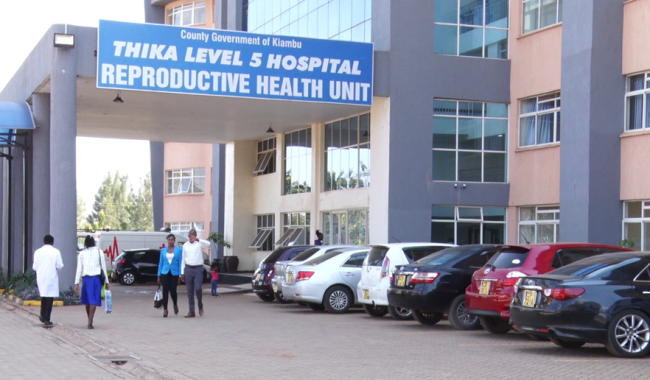The Kenyan Senate has taken a major step toward free and equitable education by approving a motion to streamline bursary funds. Senator Karungo wa Thang’wa spearheaded the motion, aiming to create a unified, transparent, and accountable system. It seeks to consolidate all bursary funds from national and county governments, ensuring efficient and fair distribution to students.
Currently, bursary funds come from multiple sources, including the National Government Constituency Development Fund (NGCDF), the National Government Affirmative Action Fund (NGAAF), and county governments. Critics argue that these schemes suffer from nepotism, favoritism, and a lack of transparency. Many deserving students miss out on financial aid. Senator Thang’wa pointed out that, despite billions allocated to education annually, the disbursement process remains unclear. Tracking how much aid reaches individual students is difficult.
The motion directs the Ministry of Education to audit all bursary funds and integrate them directly into schools as supplementary capitation. This approach aims to remove bureaucratic inefficiencies and ensure effective use of funds. Additionally, the motion calls for public disclosure of education costs per learner, promoting fairness and equity.
Senator Thang’wa criticized the current bursary programs for being discriminatory. He emphasized that free education benefits all students, unlike the flawed bursary system. “Bursary, as it is, is discriminative—but free education is not. No child should be sent home because a system meant to support them is broken. Today, the Senate has taken a bold step to fix it,” he stated.
With the motion passed, the Ministry of Education must now implement the Senate’s proposals. However, Senator Thang’wa stressed the need for legislative amendments to create a strong legal framework for free secondary education.







[5387]x777 Login & Register: Best Slot Online Casino in the Philippines. Official x777 Casino Link & Download APK Today! Join x777, the Philippines’ best slot online casino! Fast x777 login & register. Get the official x777 casino link & x777 download apk for big wins today! visit: x777
Your point of view caught my eye and was very interesting. Thanks. I have a question for you. https://www.binance.info/pt-PT/register?ref=KDN7HDOR
usa casino online paypal
References:
https://www.livorise.com/employer/top-100-real-money-online-casinos-2025/
paypal casinos online that accept
References:
https://jobs.jaylock-ph.com/companies/new-no-deposit-bonus-codes-for-2025-casino-bonus-offers/
best online casino usa paypal
References:
https://job-bee.com/employer/62270/2025s-best-paypal-casinos-expert-verified-sites
online casinos paypal
References:
https://rsh-recruitment.nl/employer/best-real-money-online-pokies-in-australia-for-december-2025/
online american casinos that accept paypal
References:
https://www.joblagbe.com/employer/us-online-casinos-that-accept-paypal-2025/
online poker real money paypal
References:
https://www.jonkyotra.online/bbs/board.php?bo_table=free&wr_id=225
It’s like the control center for your device, housing everything from sound options to
notifications. The gear icon represents settings in most places on your Windows computer.
To begin, click on the Start menu and select the Settings
gear icon.
His sound–a wild fusion of punk, pop, rock, and pure emotional chaos–became the perfect
soundtrack for Gen Z’s anxieties and aspirations.
Yungblud’s music started resonating with a generation that felt misunderstood, overlooked,
and desperately hungry for authenticity. It was his declaration of
war against musical conformity.
References:
https://blackcoin.co/high-limit-slots-play-25-100-500-slot-machines-online/
Like many new casinos, it’s very crypto-friendly.
Seasoned gamblers will appreciate the game variety.
Overall, we think this is a worthwhile casino to check out.
The minimum deposit amount is also a bit high, at $30.
RollXO is the new beast in the New Zealand online casino jungle.
Further, you can claim other perks like our VIP Program, where you enjoy free spins and instant bonuses as you climb our loyalty ranking.
Bingo lovers will find our collections of Instant Win games interesting.
References:
https://blackcoin.co/paradise-casino-your-ultimate-online-gambling-destination/
Most recently, the Minnesota Vikings upset the Lions on Christmas Day in a game that Detroit desperately needed to
win. With the Chiefs out of the picture, it is now Josh Allen’s time?
CBS cameras captured the Steelers wide receiver taking a swing at a fan during Sunday’s game at
Ford Field.
Detroit will need to overcome injuries and some poor performances the last few weeks to try and keep playoff dreams alive for at
least another few days. Lions defense will start on the field against Max
Brosmer and the Minnesota offense. Minnesota gets moving on offense the second time around, with
Max Brosmer picking up a key third down with his legs.
With one game remaining, the Lions are on a three-game losing streak.
The Vikings (8-8) weren’t much better offensively, but they did make fewer mistakes.
“It sucks. We’ll reflect on the whole season after next week, but it sucks.”
References:
https://blackcoin.co/all-caesars-properties-in-las-vegas-2025-list/
New rules around NBA injury reporting by teams NBA looking for new restrictions on player prop betting Rozier sports…
Below are just a handful of some of our best gambling apps
for 2025. Below is a snapshot of our criteria for ranking
gambling operators. Our review process is carefully designed to make
sure every casino we recommend is of the highest quality.
Players are encouraged to engage in banter with the dealer or inquire about the optimal strategy for playing their hand.
Social interaction is a crucial part of that experience for many players who
enjoy chatting with both the dealer and other players. Live dealer
games have become increasingly accessible thanks to technological
advancements such as high-quality video streaming and reliable
internet connections. Blackjack’s popularity becomes evident when you consider
the number of variations available in comparison to other table games.
Many players choose to bet on the Pass Line instead of on the Don’t Pass Line, which has a slightly lower 1.36% house edge.
References:
https://blackcoin.co/treasure-island-ti-las-vegas-hotel-casino/
Ein Teil der Einnahmen wird zudem gezielt für Suchtprävention und Spielerschutzmaßnahmen eingesetzt, um Glücksspielsucht
zu bekämpfen. Selbst in renommierten Casinos in Deutschland kann an den Automaten in Freizeitkleidung gespielt werden,
da diese Bereiche vom Roulette und Blackjack komplett getrennt sind.
Mehr und mehr geht das Casinospiel aber in die Richtung casual,
sodass sich immer öfter in der kompletten Spielbank in gepflegter Freizeitkleidung bewegt werden kann.
Ihr plant, zum ersten Mal ins Spielcasino zu gehen und ihr seid noch
unsicher, was genau auf euch zukommt?
Nachfolgend finden Sie alle nach Region oder Städten geordneten Spielbanken in Deutschland.
Auch die Gewinnchancen sind online deutlich höher als in der örtlichen Spielhalle und
Casino in Österreich . Das Online Casino ist
die Zukunft des Glücksspiels. Egal, wo Sie sich gerade befinden, es gibt mehrere Möglichkeiten, um an Ihr
Ziel zu gelangen. Mit der heutigen Technik ist es einfacher denn je,
Spielhallen in meiner Nähe von Österreich zu finden.
Punto Banco (Baccara) war lange nur in Stuttgart
und Dortmund verfügbar, inzwischen bieten auch die bayerischen Casinos in Bad Füssing, Garmisch-Partenkirchen und Feuchtwangen dieses Spiel an. Leser finden hier die neuesten Casino
News und Nachrichten zu Themen rund um lokale Spielbanken, virtuelle
Spielhallen und vieles mehr. Die folgende Übersicht zeigt, welche staatlichen Spielbanken in den einzelnen Bundesländern zu finden sind und gibt
einen Überblick über die regionale Verteilung
sowie das jeweilige Spielangebot. Während die Gemeinsame Glücksspielbehörde
der Länder (GGL) ausschließlich für die Regulierung von Online Glücksspiel zuständig
ist, unterliegen staatliche Casinos in Deutschland der Gesetzgebung
der einzelnen Bundesländer.
References:
https://online-spielhallen.de/revolution-casino-login-ihr-weg-zum-spielvergnugen/
Auch für Gäste aus der Umgebung Das schöne Dekor und eine exotische Atmosphäre lassen die Kunden sich hier entspannt fühlen. Die günstige Lage dieses Ortes macht es leicht, das Lokal mit jedem Transport zu erreichen.
Ob deftige Schweinshaxe mit Knödeln, zarte Steaks vom Grill oder frische Meeresfrüchte – hier ist für jeden Geschmack
etwas dabei. In den Restaurants der Casinos können die Besucher eine Vielzahl von Köstlichkeiten entdecken. Die kulinarische Vielfalt
in den Münchener Casinos ist ein wahrer Gaumenschmaus. Setzen Sie sich an einen der Spieltische und versuchen Sie Ihr Glück beim Roulette, Poker oder Blackjack.
Ob feinste Meeresfrüchte, zartes Fleisch oder vegetarische Köstlichkeiten – die Auswahl ist
vielfältig und lässt keine Wünsche offen. Von exquisiten Gourmet-Restaurants mit Michelin-Sternen bis hin zu gemütlichen Bistros und Bars – hier
ist für jeden Gaumen etwas dabei.
Entdecken Sie unsere Speisekarte Die Einrichtung befindet sich an einem außergewöhnlichen Ort am Ufer der
Saar, in der Nähe des Yachthafens, neben dem Kindergarten und dem Treidelpfad.
Ihr werdet sicherlich diese stille Atmosphäre schätzen. Dieser
Ort bietet eine große Auswahl an Gerichten zu
erschwinglichen Preisen. Unter anderen Lokalen wo man die deutsche Küche probieren kann ist dieses Restaurant womöglich eines der besten.
References:
https://online-spielhallen.de/boaboa-casino-aktionscode-ihr-schlussel-zu-exklusiven-vorteilen/
Thanks for sharing such a good thought, paragraph
is nice, thats whhy i have reazd it completely https://Bookofdead34.Wordpress.com/